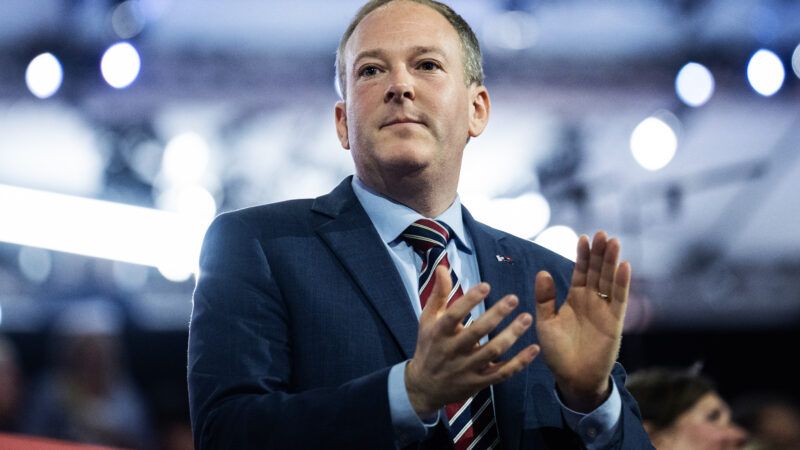Environmental Protection Agency
Trump's Next EPA Administrator Is a Lawyer, Not an Environmentalist
Lee Zeldin’s legal prowess may lead to a shrinking of the administrative state.

President-elect Donald Trump is picking former Rep. Lee Zeldin (R–N.Y.) to lead the Environmental Protection Agency (EPA) in his next administration. The pick came as a surprise to many who expected Andrew Wheeler, Trump's former EPA administrator, to lead the agency again, according to the Washington Examiner. While not considered an energy and environmental policy wonk, Zeldin could bring a fresh perspective to the EPA and reduce the scope of an agency that has become a behemoth that regularly oversteps its statutory authority.
In June, the Supreme Court struck down the Chevron doctrine. This decades-old precedent forced courts to defer to an agency's interpretation of ambiguous laws, which empowered agencies to implement broad, overreaching regulations. The June decision means that bureaucrats must act within the authority given to them by Congress. In a post-Chevron world, where any changes to Joe Biden–era regulations must pass legal muster, Zeldin's "governance and legal expertise will make for a successful tenure at the EPA," Nick Loris, the vice president of public policy at C3 Solutions, a free market energy think tank, tells Reason.
The Biden administration's greenhouse gas power plant rule will likely come under fire. Finalized this year, this directive forces all coal plants (except those that will cease operating by 2032) and new natural gas turbines to capture 90 percent of their greenhouse emissions by 2032. The cost of this regulation will drastically outweigh the perceived environmental benefits, according to David Kemp, a policy analyst at the Cato Institute, a libertarian think tank. The Supreme Court has allowed the rule to stand as it is litigated in lower courts.
Rule making and programs by the EPA, especially in the past four years, have rewarded politically favored technologies and special interests. In March, the agency finalized a tailpipe emissions rule whose stringent regulations equate to a de facto ban on internal combustion vehicles. The top-down mandate denies consumer choice—many drivers don't want an electric vehicle—and will increase costs, especially for low- and middle-income families.
Meanwhile, the Greenhouse Gas Reduction Fund passed in the Inflation Reduction Act gives the EPA $27 billion to dole out to nonprofits and state governments for environmentally focused projects. This program is duplicative of other wasteful federal initiatives and rife for fraud and abuse, according to the EPA's inspector general.
While the selection of Zeldin could represent a downsizing of the EPA's reach, federal agencies have been playing regulatory pingpong for more than a decade, which has given the administrative state more power, caused uncertainty for businesses, and increased the size of D.C.'s lobbying apparatus. All of this "speaks for the need for Congress to step up rather than cede so much authority to the agencies," according to Loris.
During his time in Congress, Zeldin, who received his J.D. from Albany Law School before joining the Army Judge Advocate General's Corps, served on the House Financial Services and Foreign Affairs committees. While there, the majority of legislation he sponsored focused on international affairs and the armed forces, but he did support efforts to repeal the EPA's Renewable Fuel Standard—a program that has increased gas prices, distorted food markets, and hurt the environment.
As a New York gubernatorial candidate in 2022, before his loss to now-Gov. Kathy Hochul, Zeldin's energy messaging toed the party line of embracing an "all of the above" approach that includes natural gas extraction and the expansion of nuclear power. New York has outlawed hydraulic fracking and nuclear power is banned in some parts of the state.
With many of the EPA's edicts being redundant to the function of state and local agencies, which are better-equipped to protect communities and handle environmental challenges, it is well past time to reform the agency and bring power back to local communities, the private sector, and Congress.
In a statement to the New York Post, Zeldin said that as EPA administrator he will "slash the red tape holding back American workers from upward economic mobility." For the sake of taxpayers and the environment, hopefully Zeldin holds firm on this commitment.


Show Comments (21)